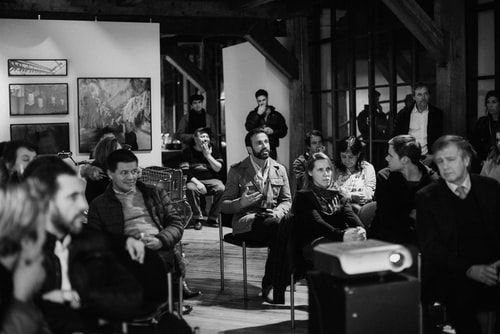The session that I shared was about developing new tools to explore the biology of malignant transformation. It was about different types of tumors, follicular lymphoma and CLL. We had a nice talk from Giovanni Tonon that explores the biology and the epigenetic landscape of the MBL that can progress into CLL and compared the differences between epigenetic landscape versus transcriptomic landscape and provided evidence that the epigenetic landscape is really a strong marker and provides better markers than the transcriptome to characterize the MBL to CLL transition...
The session that I shared was about developing new tools to explore the biology of malignant transformation. It was about different types of tumors, follicular lymphoma and CLL. We had a nice talk from Giovanni Tonon that explores the biology and the epigenetic landscape of the MBL that can progress into CLL and compared the differences between epigenetic landscape versus transcriptomic landscape and provided evidence that the epigenetic landscape is really a strong marker and provides better markers than the transcriptome to characterize the MBL to CLL transition. So we also had a nice talk from Dinis Calado who developed a mouse model of follicular lymphoma combining several genetic hits and he tried to understand what are the characteristics of therapy-resistant cells upon R-CHOP therapy. And he is really trying to decipher the biology of follicular lymphoma CPC in order to be able to target those cells and prevent eventual relapses.
This transcript is AI-generated. While we strive for accuracy, please verify this copy with the video.














